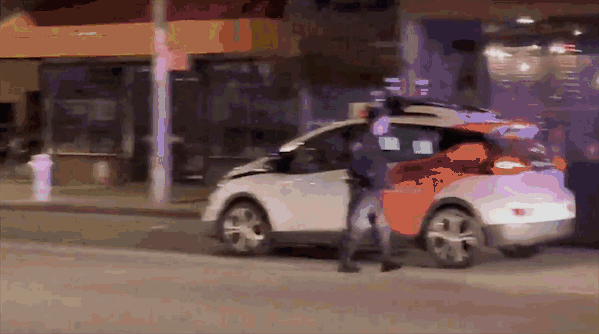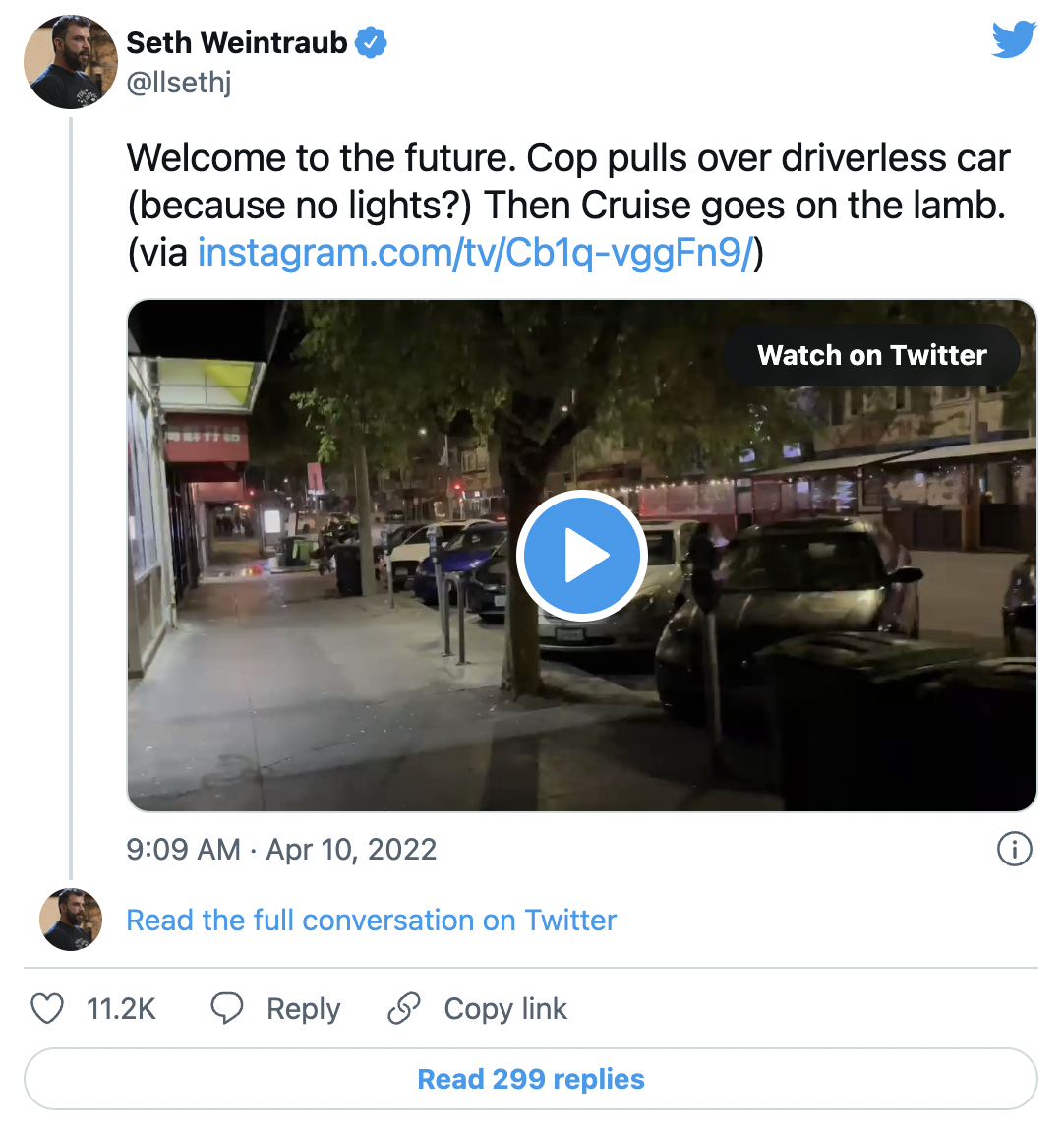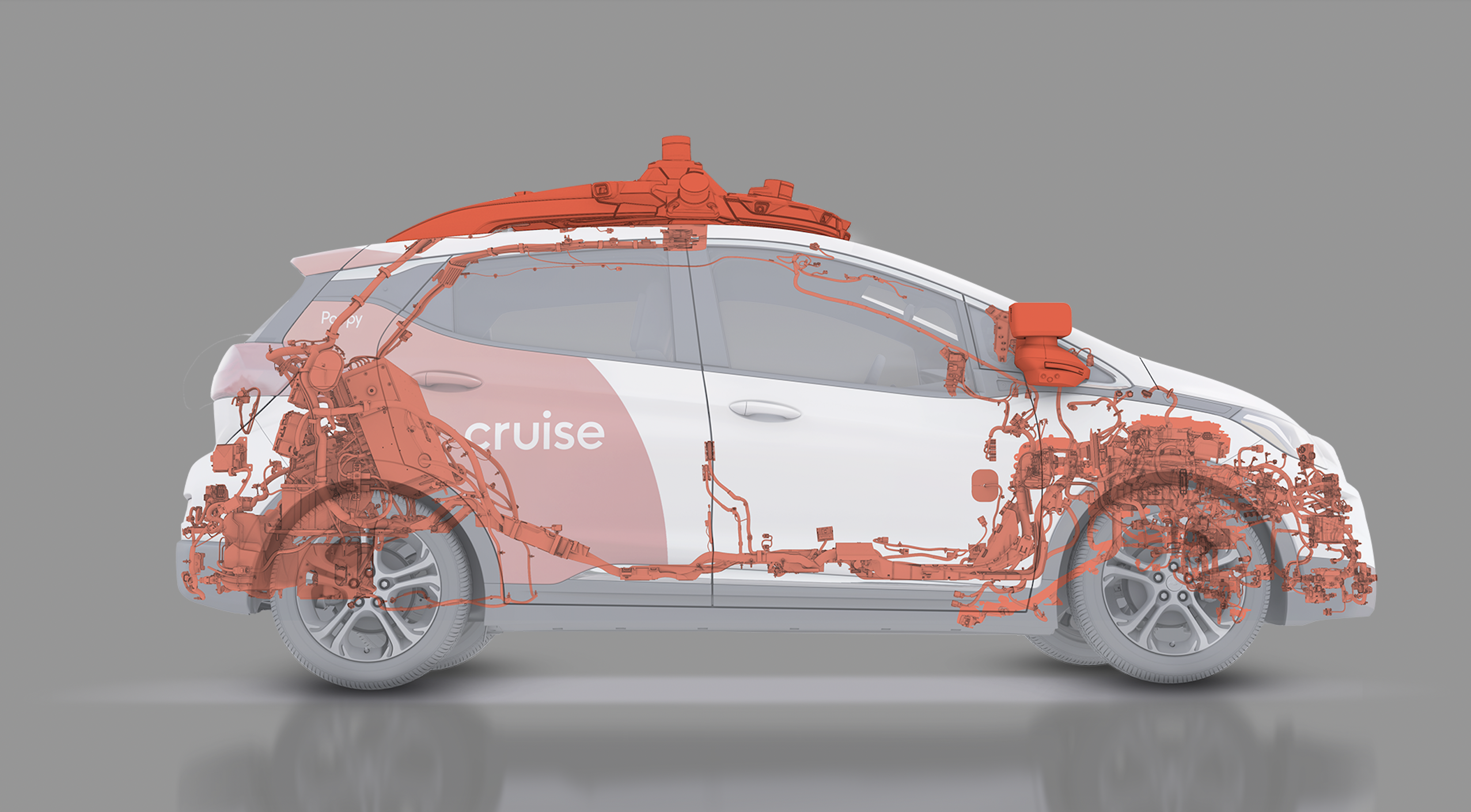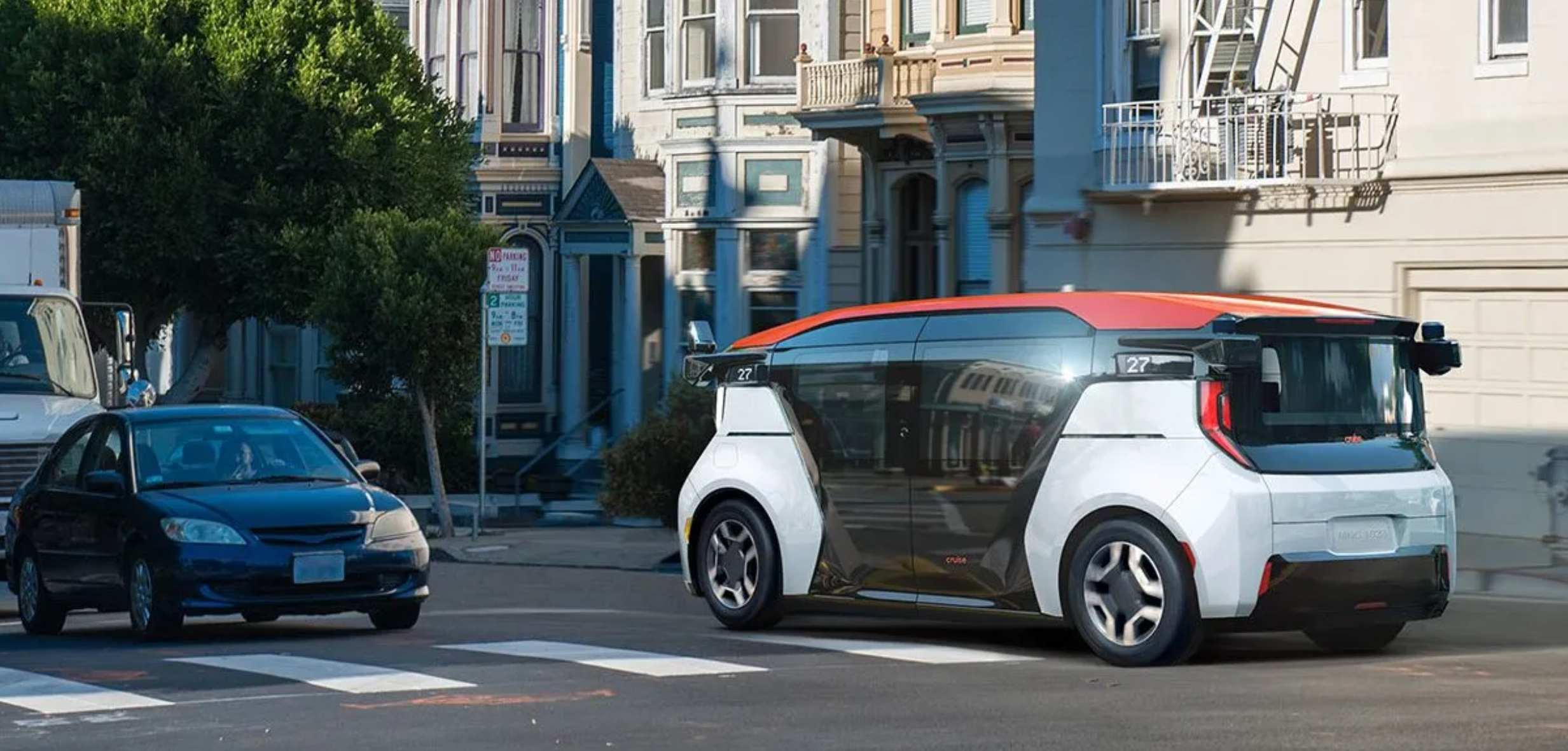On April 10, 2022 local time, a driverless Chevrolet Bolt electric-powered taxi based on General Motors’ BEV platform was pulled over in the Richmond district of San Francisco by police. However, while the police were inspecting the car, it “suddenly accelerated and drove through an intersection before stopping at the side of the road,” which was recorded by a passerby on a mobile phone.


At present, Cruise, the driverless taxi service company under General Motors to which the car belongs, has updated the latest development of the incident: the behavior of the “offending car” in the video is programmed to yield to the police, and it drove to the nearest safe location before stopping. San Francisco Police Department did not issue a ticket for the incident, and the company will provide the police with a special contact method for “interacting with the vehicle” as soon as possible.
In the replies to the original video on social media, some netizens pointed out that the driverless taxi did not turn on its headlights at night, which was very dangerous for pedestrians, and called on NHTSA (National Highway Traffic Safety Administration) to investigate and follow up.

Driverless taxis, also known as robotaxis, are automated driving vehicles with SAE automation levels of L4 or L5. So far, all driverless taxis put into operation have been based on existing vehicles that were modified with additional sensors such as lidar and cameras to achieve autonomous driving capabilities. The cost of early vehicles was as high as 300,000 US dollars. However, the cost of key components such as lidar has dropped by more than 90% in recent years, and the cost of each robotaxi may further decrease.
 # Cruise
# Cruise
Cruise is an American self-driving car company headquartered in San Francisco, California, and is a subsidiary of General Motors. In June 2015, it was licensed to test autonomous vehicles on public roads. In January 2020, Cruise released its self-designed autonomous vehicle, the Cruise Origin, which is designed to be driverless and is not equipped with a steering wheel. The unit cost for mass production is expected to be USD 50,000 per vehicle, and the expected lifetime mileage is one million miles. On February 1, 2022, Cruise announced the launch of its self-driving taxi service to the public.

Baidu & BAIC
Baidu announced its partnership with BAIC BJEV in 2021 to produce fifth-generation self-driving taxis, the Apollo Moon. The unit cost of each vehicle is less than CNY 500,000, and over the next three years, a fleet of 1,000 self-driving taxis will be deployed. By exploring different profitable aspects of autonomous driving, the unit cost of these autonomous vehicles will be reduced by two-thirds.
Waymo
Waymo is another US-based self-driving taxi service provider operating in San Francisco, with a unit cost of about USD 0.30 per mile, including the testing and hardware costs.
This article is a translation by ChatGPT of a Chinese report from 42HOW. If you have any questions about it, please email bd@42how.com.
